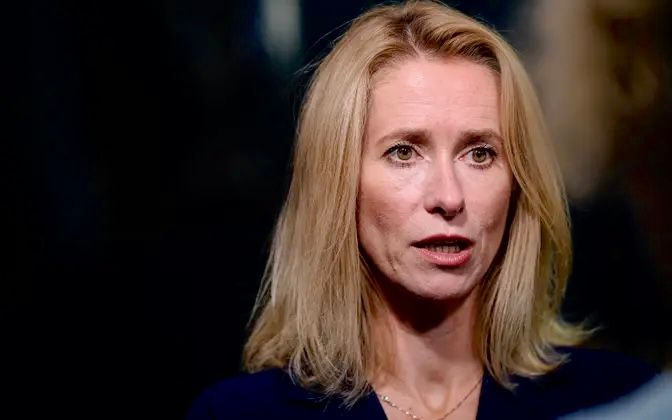Estonian Prime Minister Evades Accountability: A Crisis of Democracy Unfolds
In a shocking development that threatens the very foundations of Estonia's democratic processes, Prime Minister Kaja Kallas appears to have chosen a path of evasion rather than facing the controversies head-on. As reports suggest, Prime Minister Kallas and her advisors seem to have deliberately overlooked the urgency of

In a shocking development that threatens the very foundations of Estonia's democratic processes, Prime Minister Kaja Kallas appears to have chosen a path of evasion rather than facing the controversies head-on.
As reports suggest, Prime Minister Kallas and her advisors seem to have deliberately overlooked the urgency of the ongoing scandal. Despite being summoned by both the Riigikogu State Budget Control Special Committee and the Anti-Corruption Special Committee to address concerns related to the "eastern transport" scandal, the Prime Minister has been conspicuously absent. Instead, she sent Finance Minister Mart Võrklaev in her stead, who understandably lacks the required insight into questions concerning the Prime Minister's spouse.
Citing her busy schedule as the reason, Prime Minister Kallas has avoided attending the joint committee meeting. But one can't help but wonder: what could be more pressing than resolving such a high-profile controversy with clear answers? Could it be that Kallas either doesn't want to or cannot provide the necessary clarifications? This evasion suggests that the crisis is evolving, with potential ramifications for the entire coalition government.
This audacious avoidance raises concerns about the functioning of the Estonian democracy. In a fully functional democratic state, the Prime Minister should willingly appear before the parliament. Resorting to measures like law enforcement to compel attendance would be absurd in a democratic context, yet here we are, contemplating such scenarios.
Drawing parallels, the US Congress has the power of "subpoena," which obliges individuals to testify when summoned. Such a mechanism underscores the importance of accountability within a democracy. The very idea that an official, especially of the Prime Minister's stature, could simply refuse to engage with parliamentary procedures, citing trivial reasons, is alarming. The only plausible explanations for such avoidance might be a) a disconnect from one's national responsibilities or b) a fear of revealing unsavory or illegal details.
The current situation highlights a potential gap in Estonian legislation. While countries like the USA grant their parliaments investigative powers, Estonia seems to be lacking in this regard. No democratic institution should ever hear the words "I won't come" from a public servant, especially not from the head of the government.
As Estonia grapples with this unsettling scenario, questions arise about its democratic identity. Is Estonia's democracy now mirroring the questionable practices observed in Hungary or resembling a Latin American banana republic? One thing is clear: Estonia's current trajectory does not reflect the principles of Western liberal democracy.
The unfolding events compel us to introspect: What kind of democracy does Estonia want to project, and how will its citizens and institutions navigate this crisis? Only time will tell.




